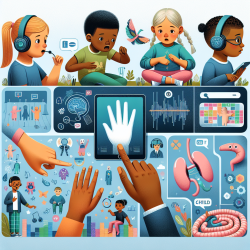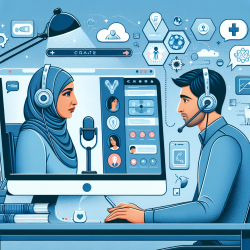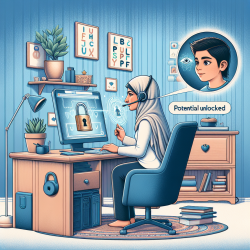Introduction
The COVID-19 pandemic has been a catalyst for revolutionary changes across various fields, including healthcare and education. A recent critical review by Dr. Mitchell S. Cappell highlights the transformative adaptations in a gastroenterology division at a medical school teaching hospital. These changes, driven by necessity, have implications for practitioners in pediatric speech-language pathology, particularly in the realm of virtual learning and teletherapy.
Key Findings and Their Implications
The study conducted by Dr. Cappell reveals several key adaptations that were implemented during the pandemic, many of which can be translated into the field of pediatric speech-language pathology. Here are some of the significant findings and their potential applications:
- Virtual Learning and Teletherapy: The shift from live to virtual lectures and meetings was a necessity during the pandemic. This transition, although challenging, provided continuity in education and clinical practice. For speech-language pathologists, embracing teletherapy can ensure uninterrupted services for children, even during unforeseen circumstances.
- Resource Optimization: The gastroenterology division maximized clinical resources by reallocating personnel to areas of greatest need. Similarly, speech-language pathologists can optimize their resources by prioritizing cases based on urgency and need, ensuring that children with critical requirements receive timely intervention.
- Psychological Support: Regular check-ins with fellows to monitor psychological stress were implemented. In pediatric therapy, maintaining open lines of communication with both children and their families can help manage stress and anxiety, fostering a supportive therapeutic environment.
Encouraging Further Research
While the adaptations in the gastroenterology division were largely successful, some changes were less effective. This highlights the importance of continuous evaluation and research. Speech-language pathologists are encouraged to engage in ongoing research to assess the effectiveness of virtual therapy methods and to develop evidence-based practices that can enhance outcomes for children.
Conclusion
The revolutionary changes documented in the gastroenterology division serve as a valuable model for other fields, including pediatric speech-language pathology. By embracing virtual learning, optimizing resources, and prioritizing psychological support, practitioners can improve outcomes for children, even in challenging times. Continuous research and adaptation will be key to navigating future challenges and ensuring the best possible care for children.
To read the original research paper, please follow this link: Critical Review Two-Years Thereafter of the Effectiveness of the Revolutionary Changes in a Gastroenterology Division at A Medical School Teaching Hospital in Response to the COVID-19 Pandemic.










